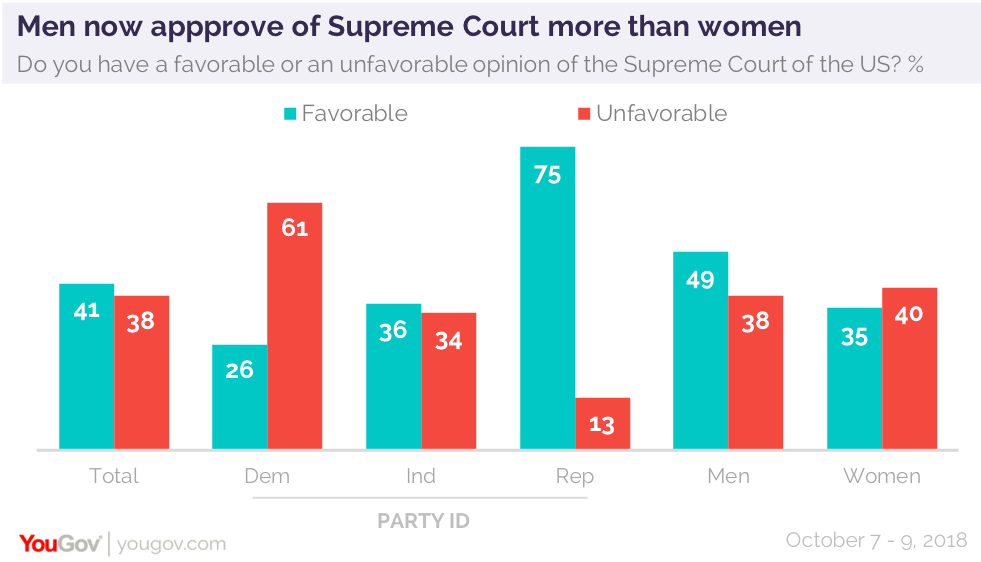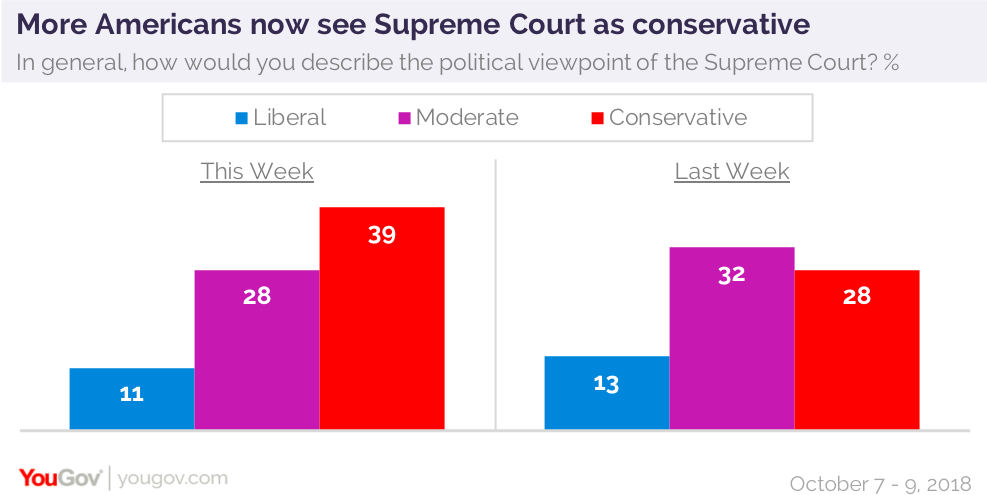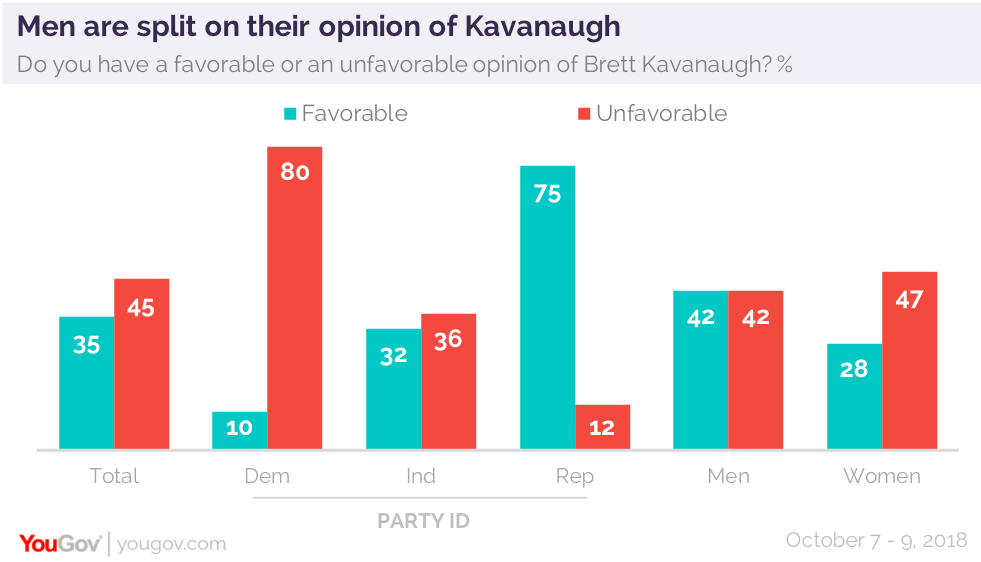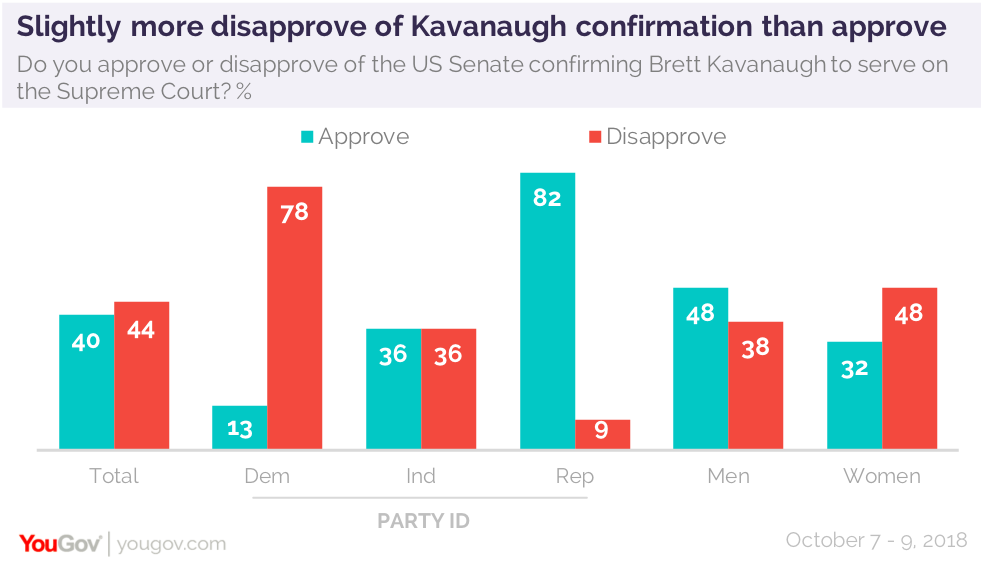More Americans disapprove of Kavanaugh on the Supreme Court than approve
The nomination and confirmation of a new Supreme Court Justice – Brett Kavanaugh – has divided the country. In the latest Economist/YouGov Poll, Kavanaugh himself remains unpopular, with slightly more disapproving of his confirmation than approving of it.
But more telling is that the confirmation may have altered Americans perception of the Supreme Court itself. Last week, Americans were more likely to hold a favorable opinion of the Court than to be unfavorable. Democrats were closely divided, but still more favorable than not. Last week, women clearly were clearly positive about the Court. But that has changed since Saturday’s close, nearly party line vote to confirm Judge Kavanaugh and make him the newest the Supreme Court Justice.

After the vote, party identifiers moved in opposite directions: Democrats now are unfavorable about the Supreme Court by more than two to one, while Republicans reporting they have a favorable opinion of the Court have increased by 11 points. Now, three in four Republicans have a favorable opinion of the Court. Women are now clearly negative, not positive.
Overall today, there is almost an even division between those who hold a favorable image of the Court and those who do not. This matters: in the past, partisans may have shifted their opinion of the Court in the wake of a specific decision (for example, Republicans objected when the Court upheld Obamacare in 2012, but shifted back as time passed and other decisions were made of which they approved). The current change has come not because of a decision the Court has made, but because of the change in membership.
The Kavanaugh confirmation also changes the public’s ideological perception of the Court. It is seen as a clear move to the right. The percentage calling the Court ideologically conservative has risen 11 points in the last week, across the board. Republicans now describing the Court as conservative is 14 points higher than a week ago, while the percentage of Democrats calling the Court conservative rose 11 points.

Only one in four American believe the Court is fair and impartial. Half of Democrats say it is biased against people like themselves; one in three Republicans think the Court is biased against them.
As for Kavanaugh, most Republicans (75%) say he will be fair and impartial. Democrats disagree. Seven in ten Democrats expect that Kavanaugh will be biased against Democrats. If that were to happen, a majority of Americans would say that behavior was unjustified. Just 16% overall would accept that bias against Democrats would be justified. One in three Republicans think a bias against Democrats by Kavanaugh would be justified, although 45% of Republicans disagree.
Kavanaugh himself continues to be polarizing. Overall opinions of him have not changed in the last week. More are unfavorable than not, and there continue to be party and gender differences.

Should he have been confirmed? That’s not clear from the overall public poll results. But the Democratic-Republican difference, along with the even split among independents, indicate how divided the country is on the new justice’s nomination. By three to two, women disapprove of the confirmation. And while there are only small differences between male and female Democrats and Republicans (with women slightly less likely than men to approve in each case), there is a directional gender gap among political independents. Independent men approve of the confirmation, independent women do not.

See full toplines and tables results
Image: Getty







